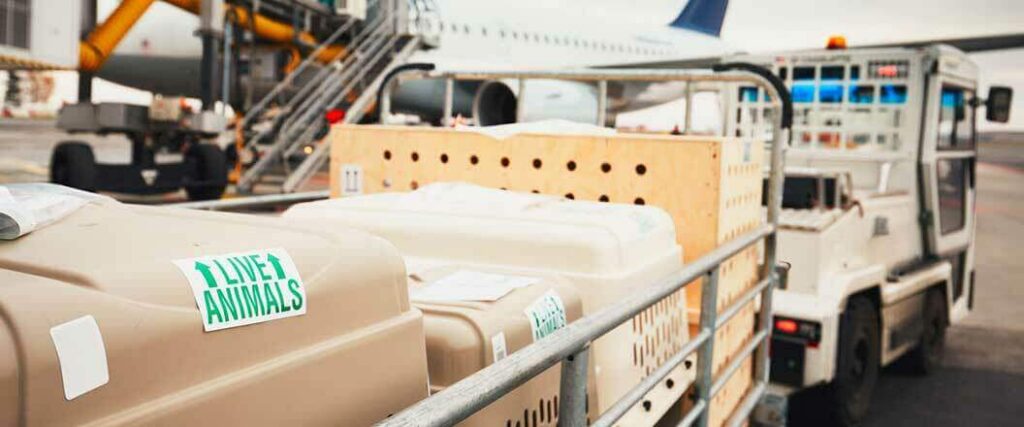The U.S. dog import ban was put in place in an effort to safeguard public health and the well-being of domestic animals from countries considered at high-risk for dog rabies.
Key Takeaways:
Learn more about the CDC’s dog importation ban, including how long it’s expected to last, what countries are affected, and how to apply for a dog import license.

The CDC initiated the dog import ban in response to a sudden increase in the number of dogs imported into the U.S. that were deemed ineligible for entry.
In 2021, the CDC noticed an increase in the number of importers circumventing dog import regulations - specifically rabies certificates. In fact, despite a decrease in global travel due to the pandemic, they found a 52% increase in falsified or fraudulent rabies certifications in 2020, compared to the previous two years.
The temporary travel ban targets dogs coming from:
The dog-maintained rabies virus variant (DMRVV) has been eradicated in the U.S. since 2007, hence the strong response from the CDC to ensure it stays that way.
Initially set on July 14, 2021, the ban has been extended multiple times: first on June 10, 2022, then August 1, 2023, and again August 1, 2024.
Importers should stay informed about potential extensions or modifications of this timeframe by consulting official CDC announcements.
Dogs from 111 countries and territories are subject to the temporary suspension, as these countries have been deemed “high-risk” by the CDC. These countries are spread across five different continents, with countries in Africa accounting for nearly half.
As of August 1st, 2024, Israel (including Gaza and the West bank) and Timor-Leste were added to the list.
| Continent | Number of Countries | Percentage of Countries |
| Africa | 53 | 48% |
| Asia | 40 | 36% |
| South & Central America | 13 | 12% |
| Europe | 3 | 3% |
| North America | 2 | 2% |
Africa
Asia
Europe
North America
South & Central America

To import dogs from high-risk countries, the CDC mandates the following:
All dogs must be at least 6 months old at the time of entry, appear healthy, and be microchipped before getting the rabies vaccine.
In a change from previous rules, dogs that meet all of the above requirements can enter the U.S. at any port or border crossing (air, land, or sea), as long as the location matches your CDC Dog Import Form receipt.
Need to import dog food? We can handle that too. Check out our article to learn more.
No, as of August 1, 2024, you can no longer apply for a CDC Dog Import Permit, and any previously issued permits will expire on August 31.
The temporary dog import ban represents a critical measure in the ongoing effort to protect public health and ensure the safety of domestic and imported dogs. But that doesn’t mean that complying with all of the rules and regulations is simple.
Always consult the latest guidance from the CDC and other relevant authorities to stay informed of any changes or updates to the import regulations. Don’t want to go it alone? Consult with one of our Licensed Customs Brokers.
At USA Customs Clearance, we can walk you through the entire import process, ensuring you have the correct information, documentation, and can clear U.S. Customs seamlessly. Have questions? Give us a call at 855-912-0406 and speak with one of our experts.
 Copy URL to Clipboard
Copy URL to Clipboard
Add your first comment to this post